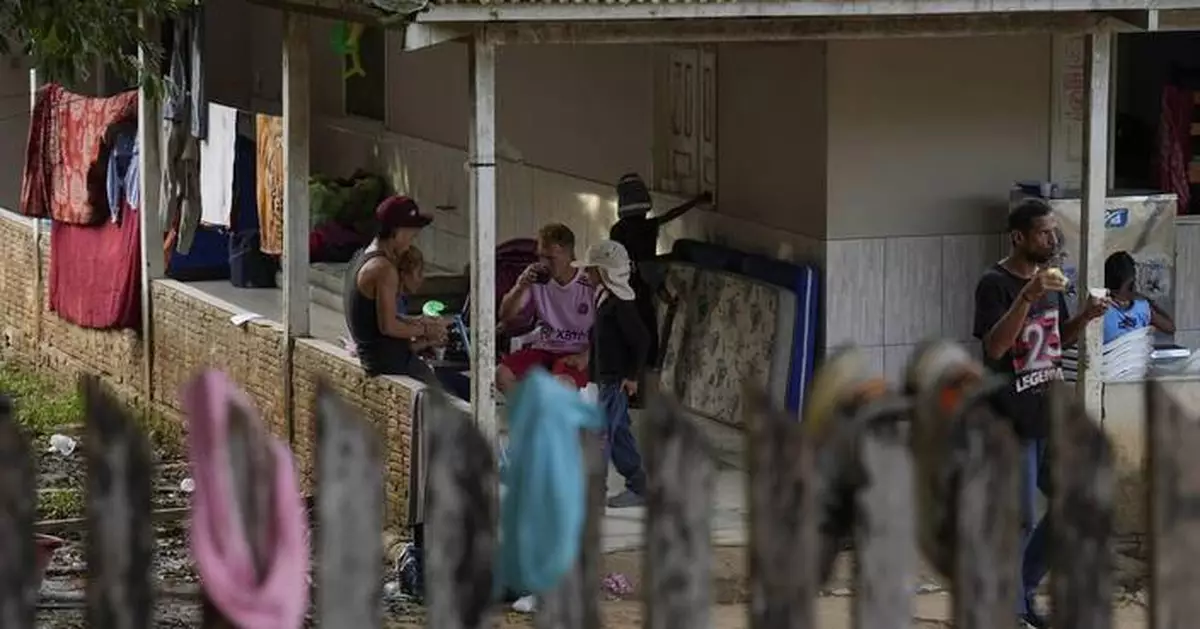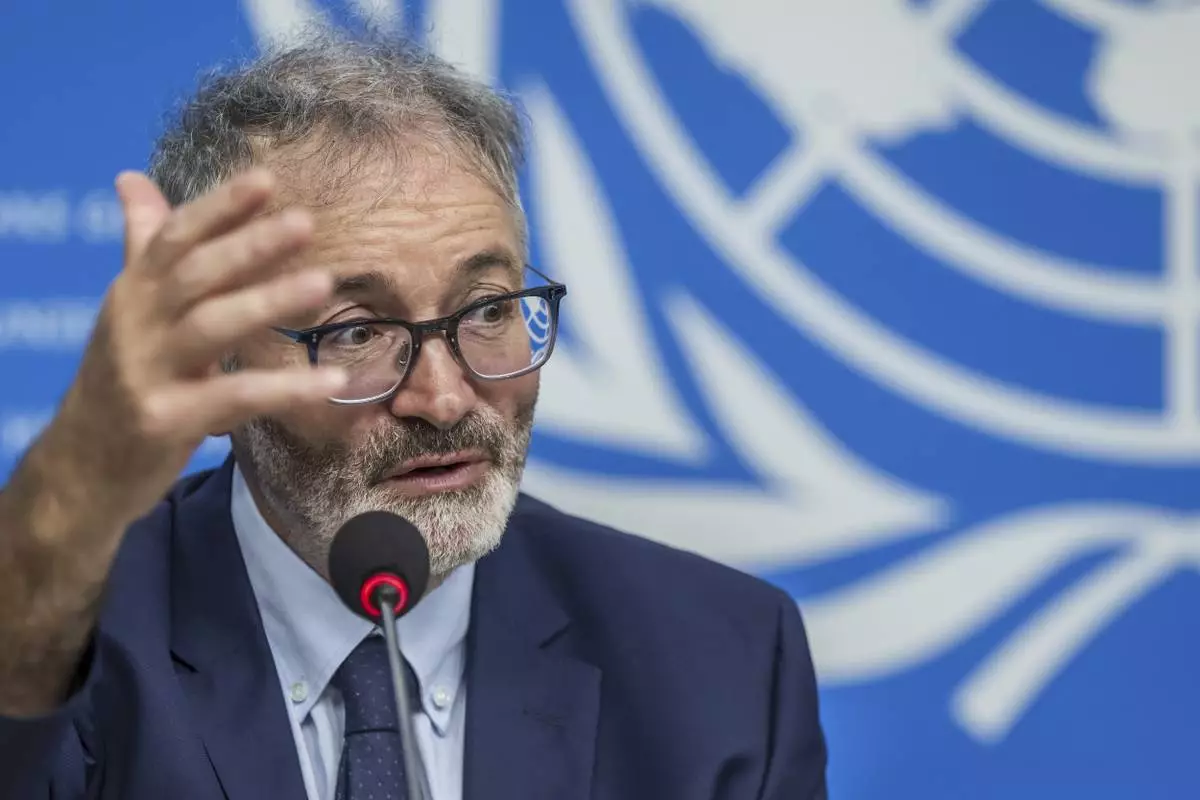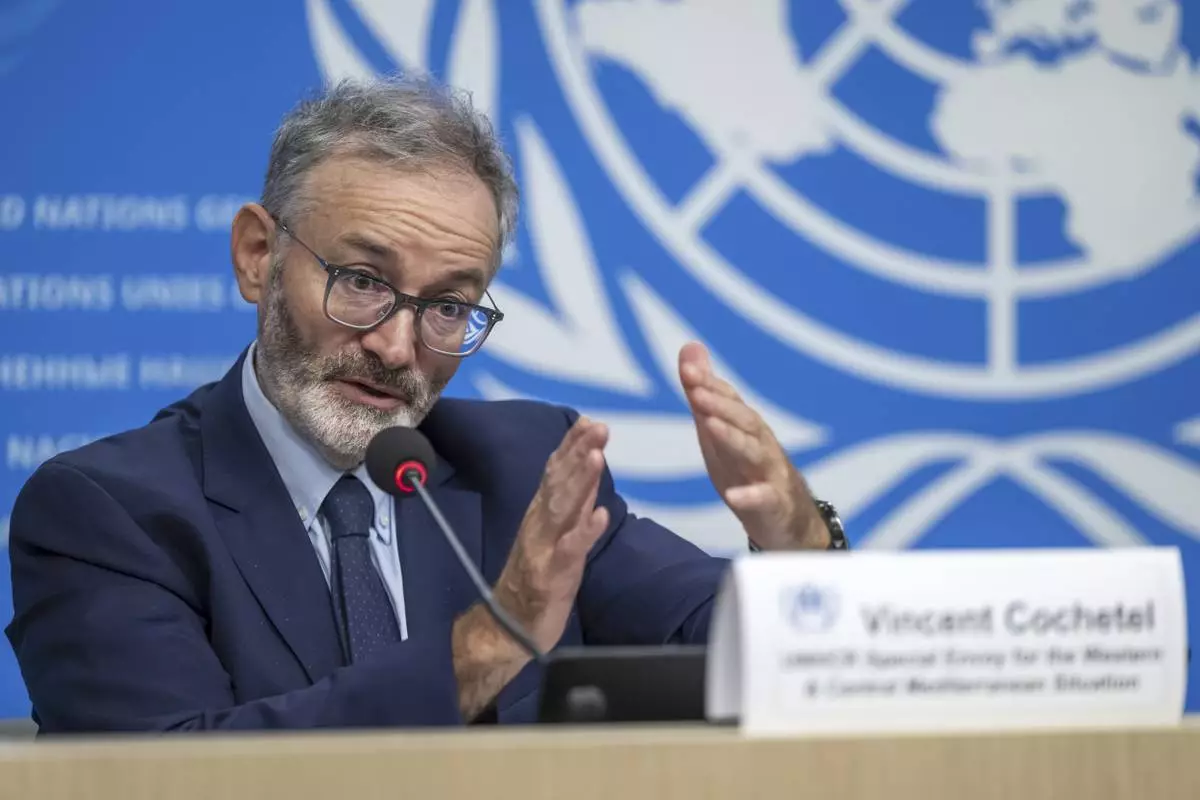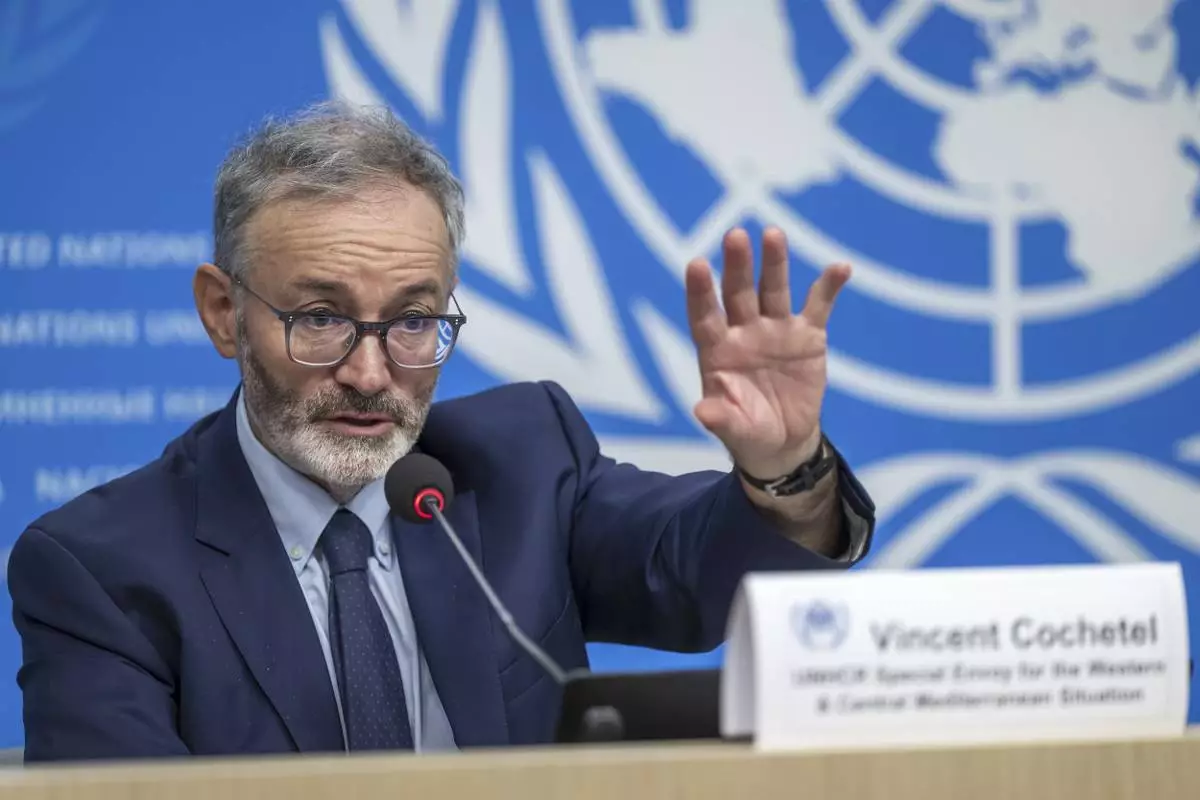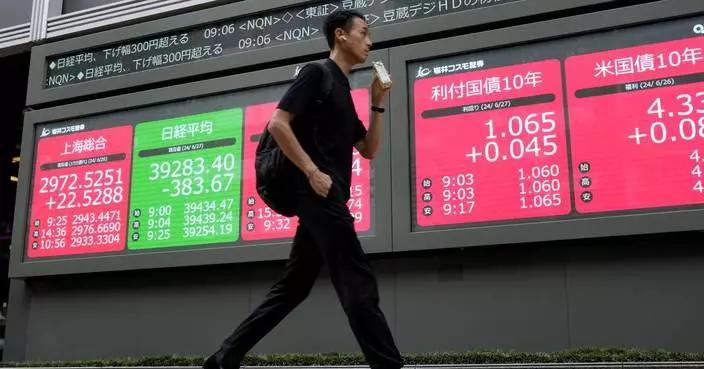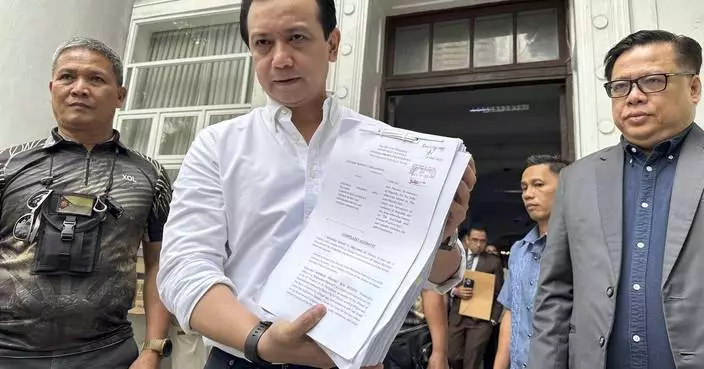ASSIS BRASIL, Brazil (AP) — Dozens of migrants sleep in a mosquito-infested six-bedroom wooden shelter in the Brazilian Amazon, their dreams of a better life in the U.S. on hold because of President Joe Biden’shalt on asylum.
Johany “Flaca” Rodríguez, 48, was ready to leave behind the struggles of life in Venezuela. She has been waiting in the shelter holding 45 people in Assis Brasil, a city of 7,000 residents bordering Peru, because others told her how difficult the journey to the U.S. has become.
Migrants, police, officials and analysts say Biden’s actions have caused a wait-and-see attitude among migrants who are staying in Latin America’s biggest economy, at least for now. Like anywhere along migrants’ routes toward hoped-for new lives, local communities are finding it hard to meet new populations’ needs.
After sleeping on dirty mattresses and in half-torn hammocks, and eating rice, beans and ground beef, Rodríguez decided this month that she and her dog Kiko would spend a few weeks with friends in the southern state of Rio Grande do Sul.
Wearing a headband, leggings and a small backpack, Rodríguez woke early to walk more than 100 kilometers (62 miles) for two days to a nearby city of 27,000 residents. There, she hopes to make some money and take a bus to Brazil’s south, then reach the U.S. one day.
“I have to stay here until it is safer to go,” Rodríguez said. “I am not super happy about staying (in Brazil), but that’s what I can do.”
Brazil saw waves of migrants passing through to North America in the first part of the year. There were Indians, Bengalis, Senegalese and Nigerians, among others, said Rêmullo Diniz, the coordinator of Gefron, Acre state’s police group for border operations,
When Biden said he was going to crack down, many people in those groups began staying in their countries instead of heading to Latin America, Brazilian government officials and independent analysts said. For citizens of South American countries, it's easier. Brazil allows residents of its 10 neighboring nations to stay visa-free for up to two years.
The Biden administration said last week that arrests for illegal crossings from Mexico fell more than 40% since asylum processing was temporarily suspended at the U.S. border with Mexico on June 5. Arrests fell below 2,400 a day for the first time during Biden’s presidency.
Acre state offers a snapshot of the attitude among many migrants, and raises the possibility that Acre and other resting spots will become long-term hosts.
The city of Assis Brasil has little to offer to migrants but the wooden shelter where Rodríguez was staying and a school gymnasium where 15 men can sleep. There are two small hotels and a bus stop used by vans crossing into Peru. It has five restaurants scattered along its main road, two grocery shops and an ice cream parlor that has Amazon flavors like local fruits cupuacu and tapereba. Migrants frequently beg for money at the city’s only square.
There are three daily flights into state capital Rio Branco, where 21-year-old Jay came from India en route to the U.S. to study engineering. He declined to disclose his hometown and his last name.
Wearing a white cap reading “RIO DE JANEIRO,” he said that “it would take too long if I just sat and waited,” in India.
“It is a long trip, very risky. But it is my dream to study there and I will accomplish it,” he said.
Brazil’s westernmost state is a remote enclave in the middle of the rainforest, used by tourists as part of an alternative route to visit Cuzco, once the capital of the Inca empire in Peru.
One of Assis’ main attractions for locals is sitting on the benches of its main square Senador Guiomard to watch soccer on TV and eat barbecue. The small city's founders came to the Amazon in 1908 to start a rubber plantation that 50 years later became a city. Not much has changed since, despite the BR-317 road that runs by it, the only land connection between Brazil and Peru. When residents of Assis Brasil are bored, and they often are, they go to neighboring Peruvian city of Iñapari to have a drink, generally a pisco sour.
Venezuelan migrant Alexander Guedes Martinez, 27, said he will stay as long as needed to get more cash and maybe in a year go to Houston, where he has family. He came with his 17-year-old partner and their 5-month-old baby.
At the Assis Brasil shelter where they were staying last month, he said that he hopes “to go (back) to Venezuela and get key documents to try to cross in a better fashion.”
“I want to be cautious because of my daughter,” he said. “Being here helps.”
Acre state’s patrol has about 40 agents to inspect 2,600 kilometers (1,615 miles) of border with Peru and Bolivia. A main road connects the three countries, but local police say that many migrants also move through the forest, some of them carrying drugs.
Cuban migrant Miguel Hidalgo, 52, tried to get to the U.S. years ago. He left the island to Suriname, then came to Brazil and doesn’t plan on leaving any time soon.
“I like Brazil. I have been here for a short time, but people are not prejudiced against me, people are lovely,” he said. “I want to live like a human being. I am not asking for any riches. I want to live in tranquility, help my family in Cuba.”
Acre Gov. Gladson Camelli said in a statement to the AP that he is worried about a bigger influx of South American migrants coming soon.
“Our government has tried to do its part in the humanitarian support,” he said.
Assis Brasil's Mayor Jerry Correia also is bracing for more demand. City hall is feeding about 60 migrants every day and voters are feeling upset in a year of mayoral elections.
“This is all on our back. This is a policy that has to be handled by the federal government,” Correia said. “People don’t know what happens on our border. We need to be seen.”
AP videojournalist Lucas Dumphreys contributed to this report.
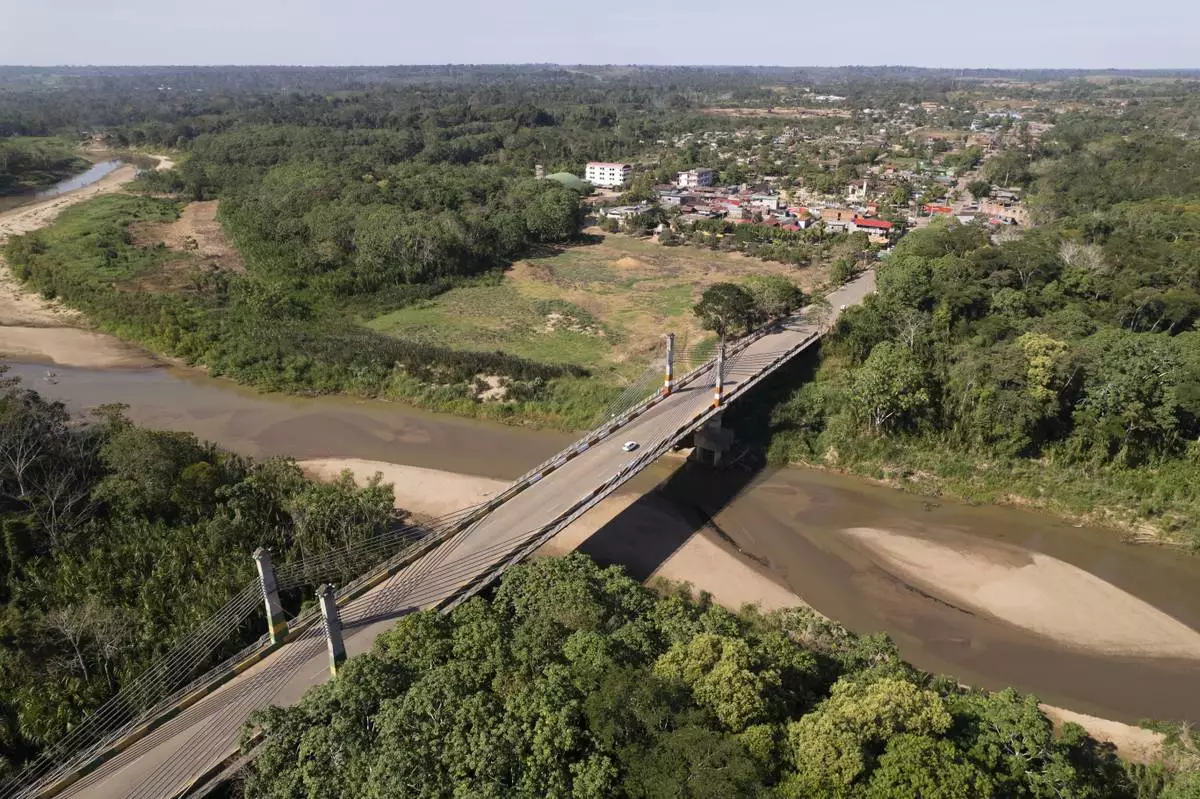
The Integration border bridge connects Assis, Brazil, left, and Iñapari, Peru, Thursday, June 20, 2024. Migrants, police, officials and analysts say President Joe Biden’s halt on asylum have caused a wait-and-see attitude among migrants staying in Brazil, placing their plans of reaching the U.S. on hold. (AP Photo/Martin Mejia)
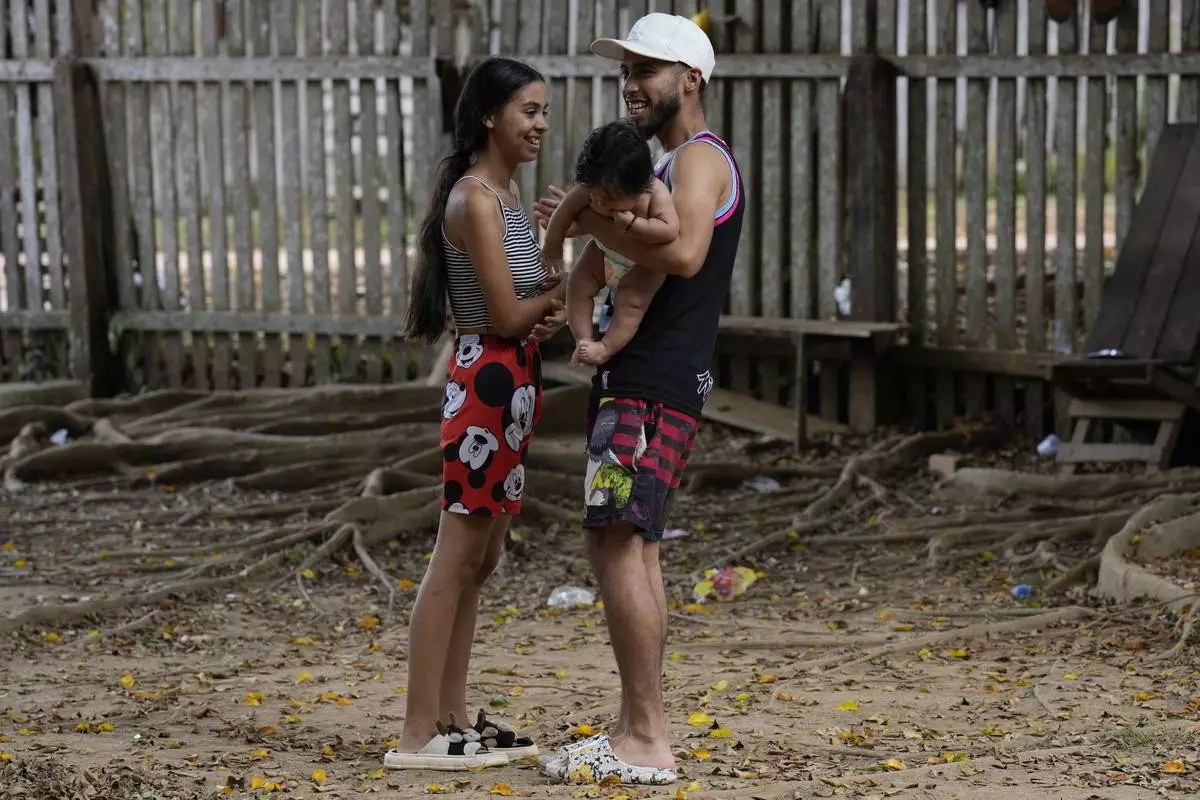
Venezuelan migrants Alexandra Villarreal, left, and Alexander Martinez, holding their daughter Alexandra, stand on the grounds of the shelter in Assis, Brazil, Thursday, June 20, 2024. Martinez said he will stay as long as needed to get more cash and maybe in a year go to Houston, where he has family. (AP Photo/Martin Mejia)
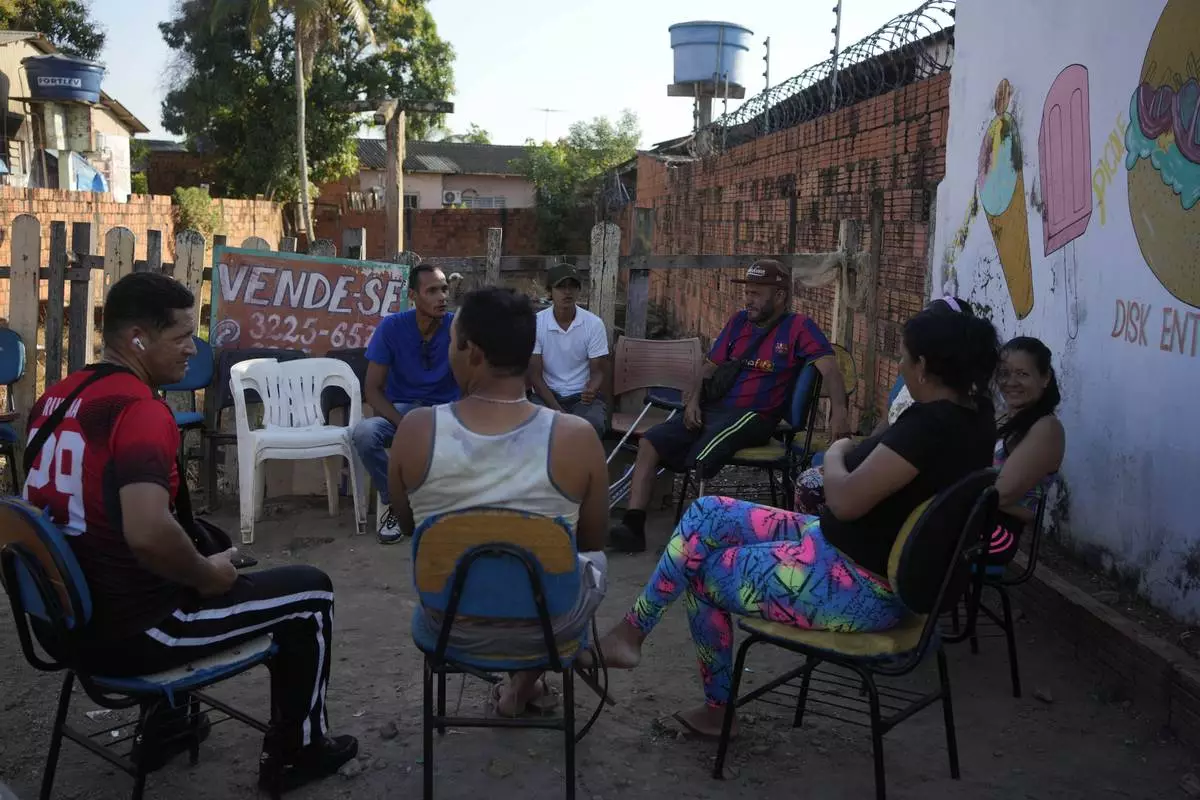
Venezuelan migrants sit in a circle at a shelter in Rio Branco, Arce state, Brazil, Saturday, June 22, 2024. Brazil’s westernmost state, Arce is a remote enclave in the middle of the rainforest. (AP Photo/Martin Mejia)
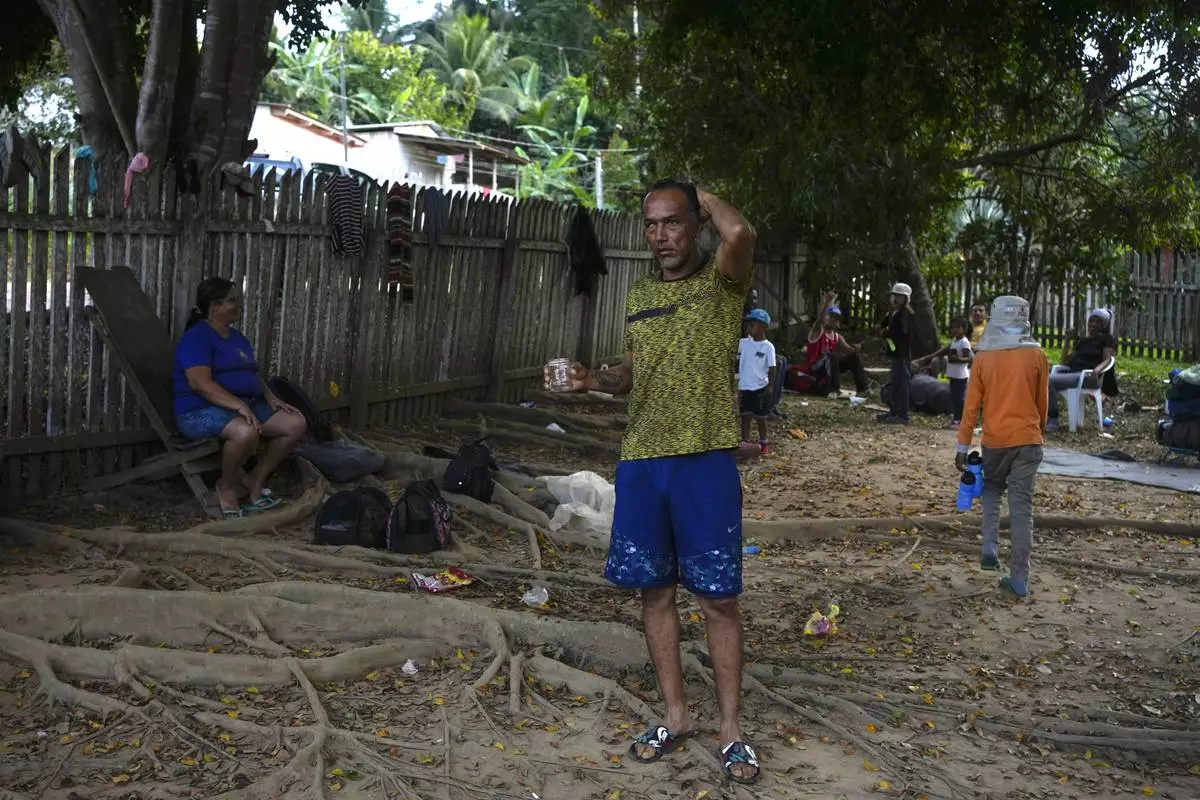
Venezuelan migrant Samuel Rodriguez stands on the grounds of the shelter in Assis, Brazil, Thursday, June 20, 2024. Migrants, police, officials and analysts say President Joe Biden’s halt on asylum have caused a wait-and-see attitude among migrants staying in Brazil, placing their plans of reaching the U.S. on hold. (AP Photo/Martin Mejia)
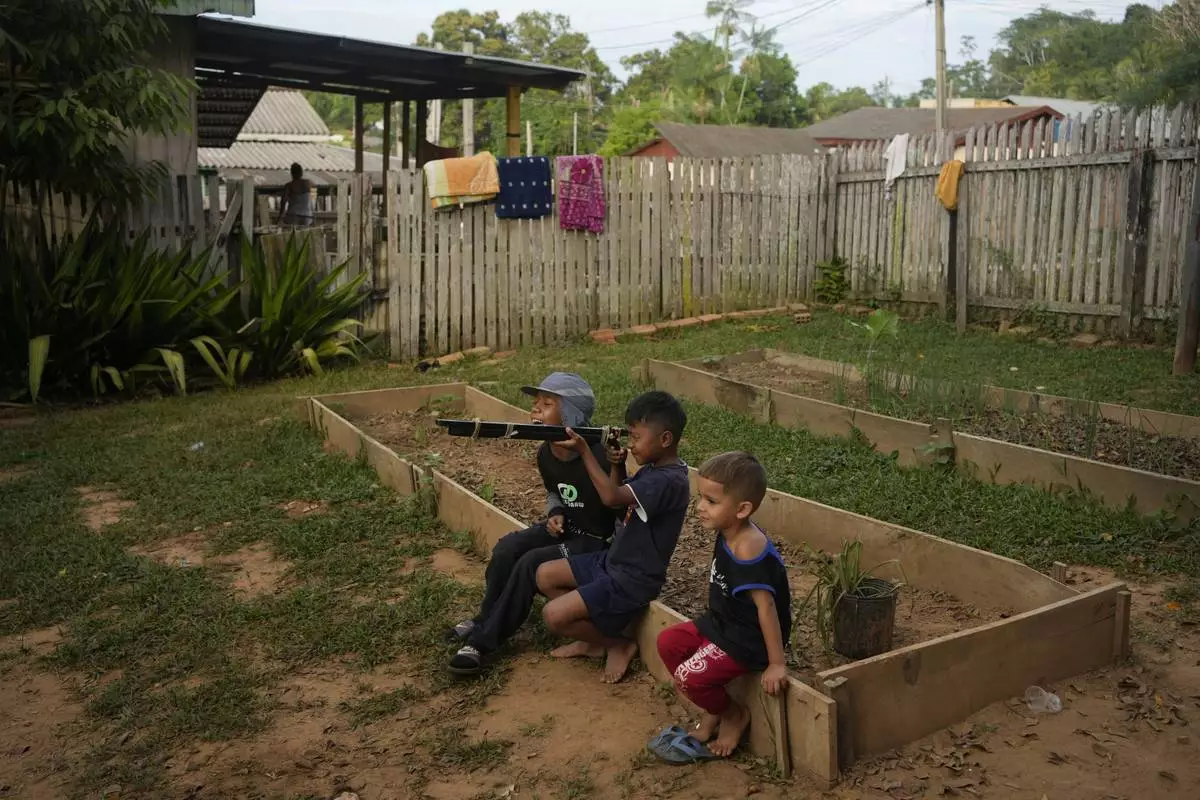
Venezuelan migrant boys play with a toy gun, crafted from square tubing and rope, at a shelter in Assis, Brazil, Thursday, June 20, 2024. The city of Assis Brazil has little to offer to immigrants but the wooden shelter and a school gymnasium where the men can sleep. (AP Photo/Martin Mejia)
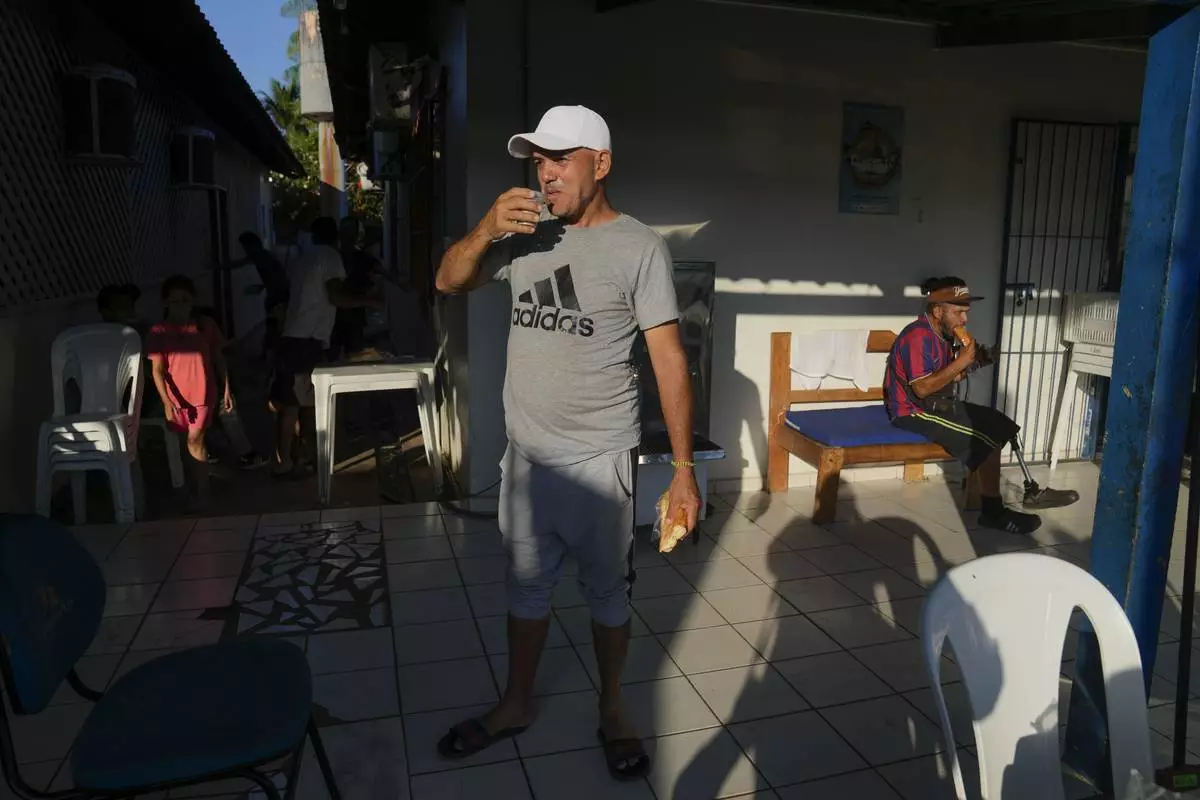
Cuban migrant Miguel Hidalgo drinks a glass of milk during breakfast at a shelter Rio Branco, Brazil, Saturday, June 22, 2024. Hidalgo who tried to cross to the U.S. years ago says, “I like Brazil. I have been here for a short time, but people are not prejudiced against me, people are lovely,” he said. (AP Photo/Martin Mejia)
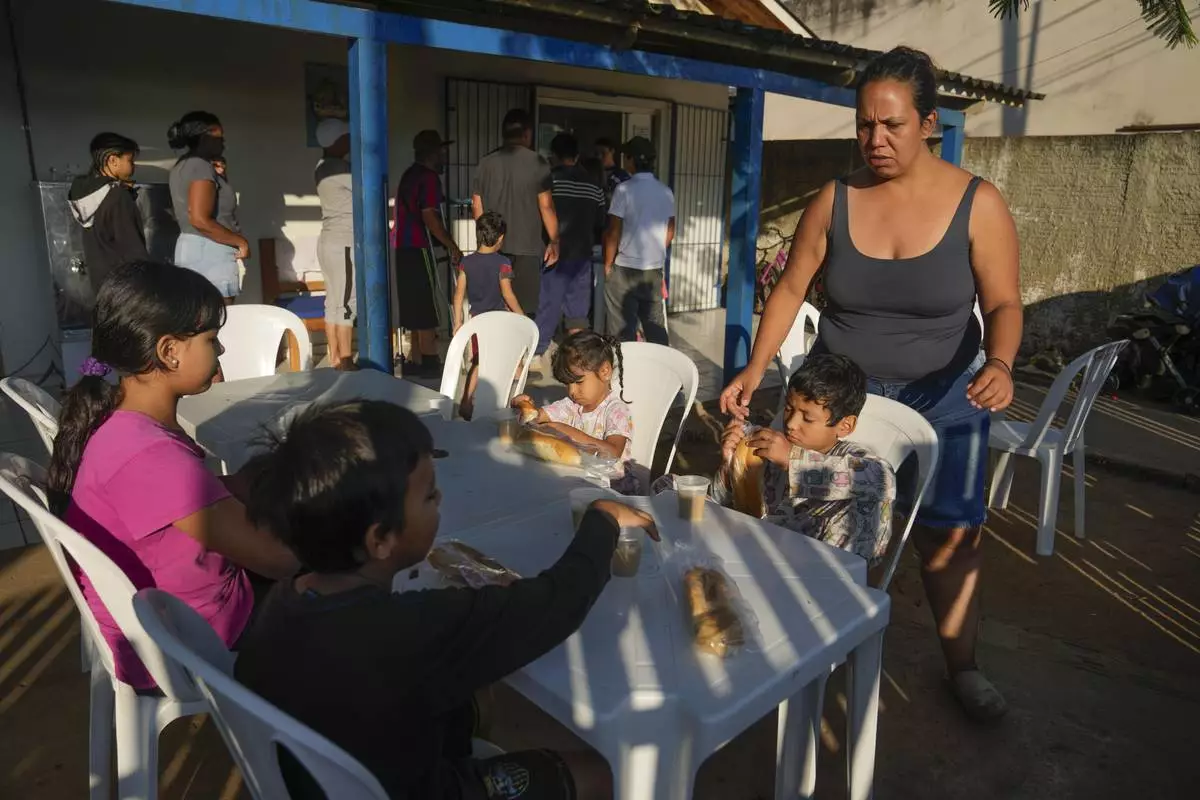
Venezuelan migrant Natalia Contreras tends to her children as they settle in to have breakfast at a shelter in Rio Branco, Brazil, Saturday, June 22, 2024. Migrants, police, officials and analysts say President Joe Biden’s halt on asylum have caused a wait-and-see attitude among migrants staying in Brazil, placing their plans of reaching the U.S. on hold. (AP Photo/Martin Mejia)
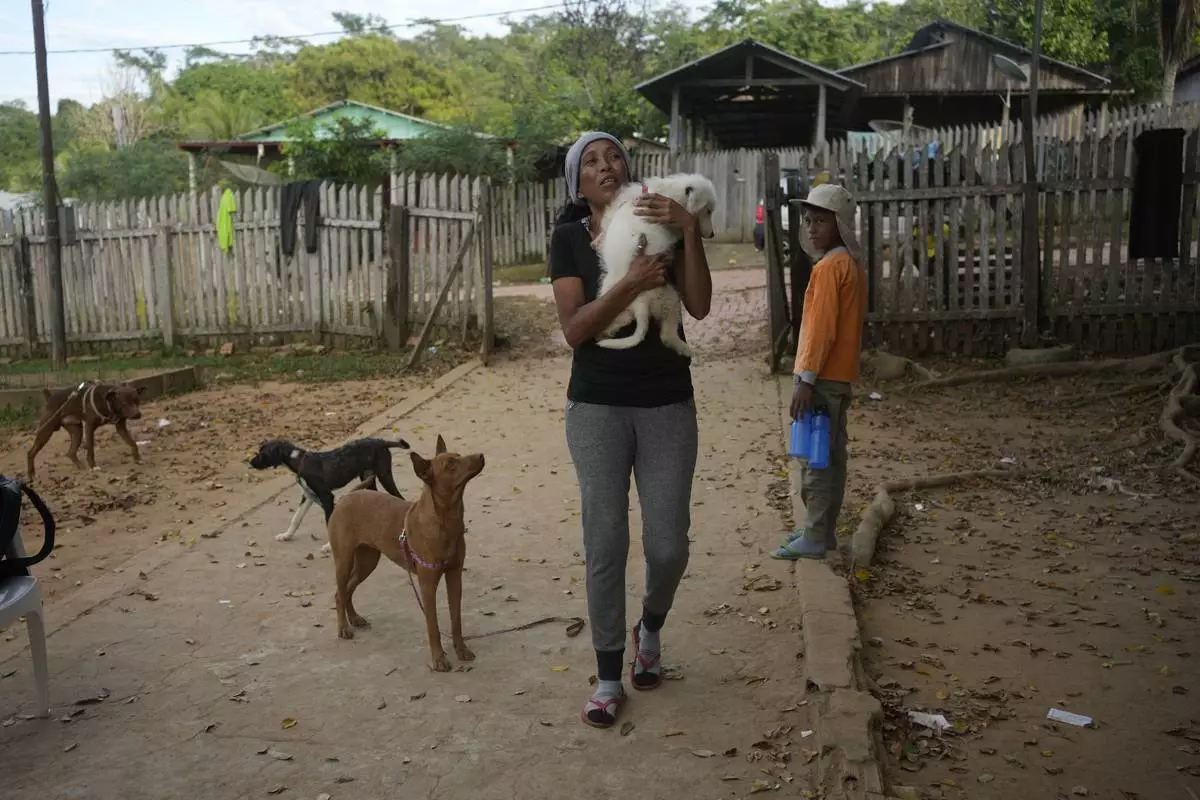
Venezuelan migrant Johany “Flaca” Rodriguez carries her dog Kiko at a shelter in Assis, Brazil, Thursday, June 20, 2024. Rodriguez has been biding her time at the shelter because countrymen told her how difficult the journey to the U.S. has become. (AP Photo/Martin Mejia)
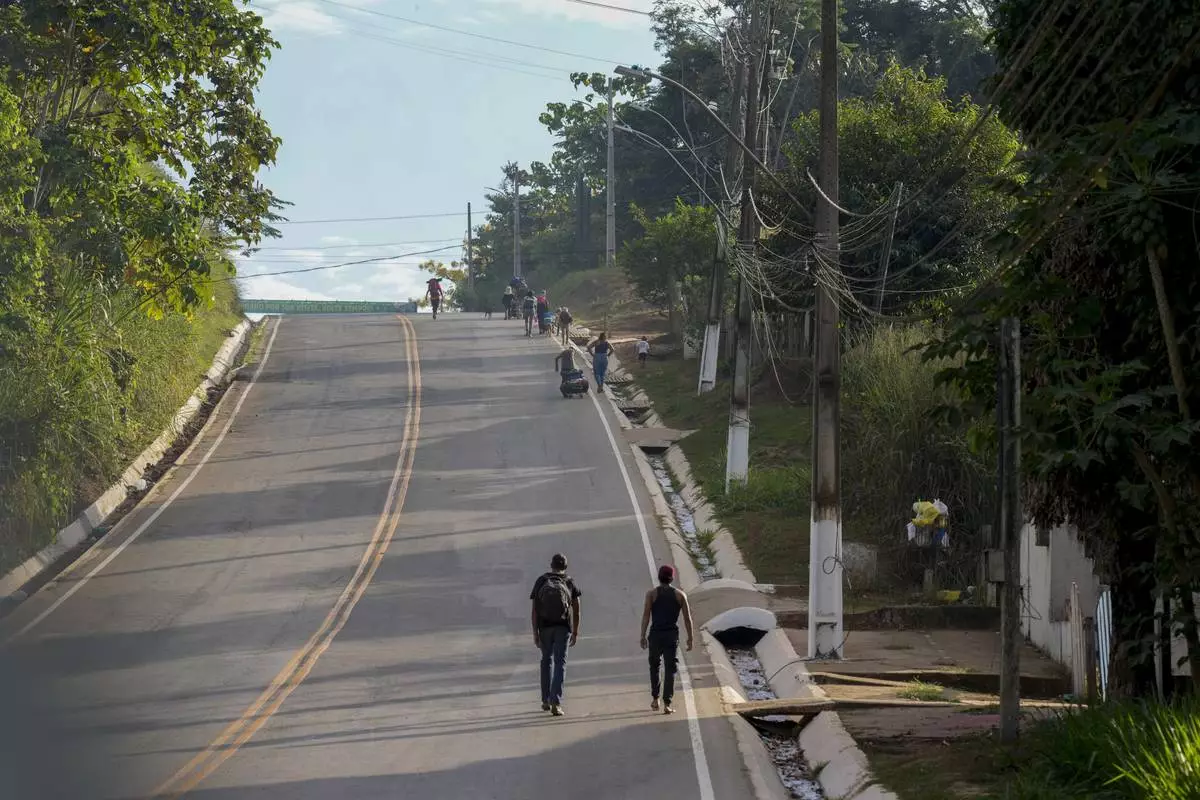
Venezuelan migrants arrive in Assis, Brazil, Thursday, June 20, 2024, after crossing the Peruvian-Brazilian border. Migrants, police, officials and analysts say President Joe Biden’s halt on asylum have caused a wait-and-see attitude among migrants staying in Brazil, placing their plans of reaching the U.S. on hold. (AP Photo/Martin Mejia)
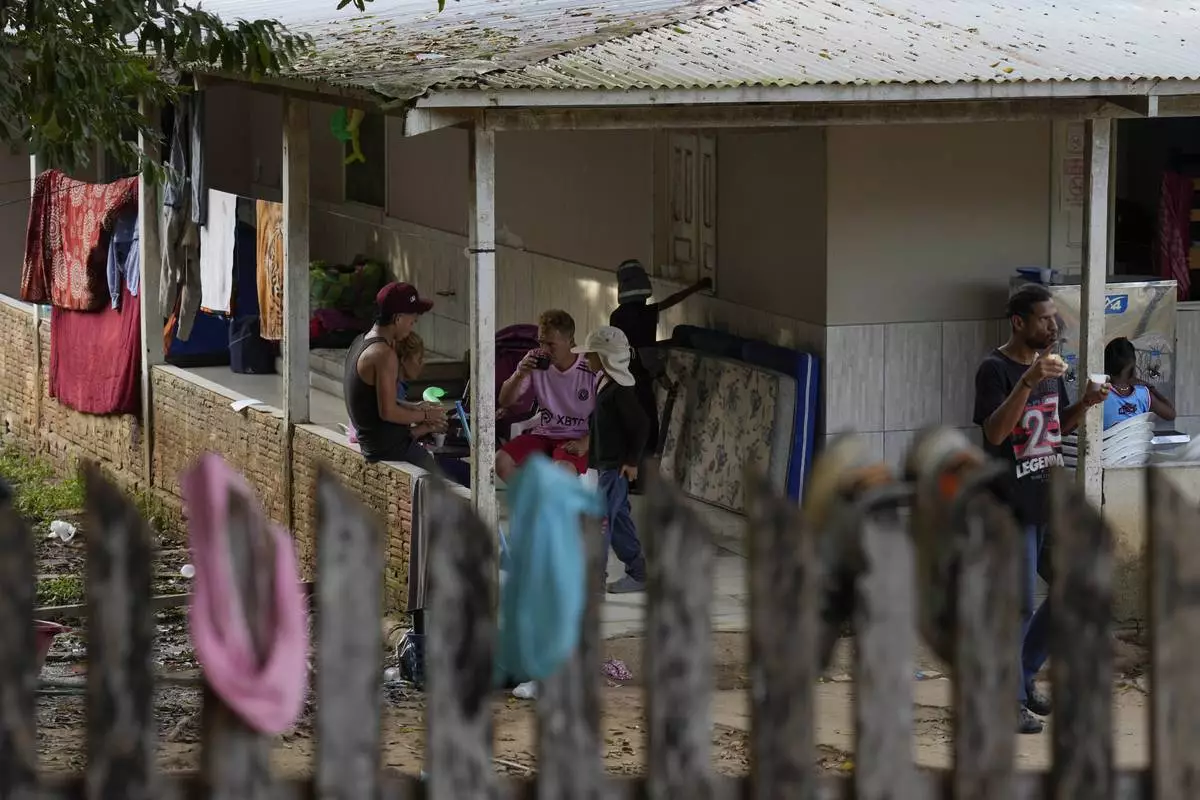
Venezuelan migrants eat breakfast at a shelter in Assis, Brazil, Thursday, June 20, 2024. Migrants, police, officials and analysts say President Joe Biden’s halt on asylum have caused a wait-and-see attitude among migrants staying in Brazil, placing their plans of reaching the U.S. on hold. (AP Photo/Martin Mejia)


